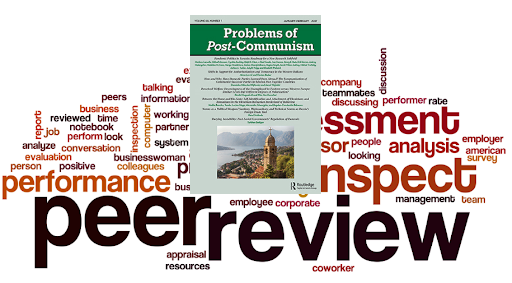Far From Politics? Closer Than You Think!
How often do you choose to vote, and why? Have you ever thought which factors shape your voice? Or, you are not interested in politics, at all? Political machines use various tools to reach their results, so it is reasonable to understand their impact. Researchers from Perm State University offer a fresher look on the election instruments in their new article:
Eleanora Minaeva and Pyotr Panov, PSU scholars from the Centre for Comparative History and Politics (CCHP), PSU, have published their article “Dense Networks, Ethnic Minorities, and Electoral Mobilization in Contemporary Russia” in the Problems of Post-Communism Journal, published by Routledge. The article by PSU scholars regards the phenomenon of dense networks, aimed to mobilize the electorate.
According to the researchers, the sustainability of the Russian electoral regime is based largely on non-programmatic electoral mobilization, ensuring a high level of electoral turnout and voting for the incumbent party. In spite of the state’s efforts to build an integrated comprehensive political machine, its segments, specifically in subnational units, demonstrate different results in electoral mobilization.
PSU scholars have studied characteristics of local communities that facilitate their emergence: countryside, settlement’s small size, and “segregated” type of ethnic groups’ localization – and their effect upon each other. Based on Duma elections’2016, an original set incorporating local-level data and GIS techniques has beenformed, showing the importance of dense networks in electoral mobilization.

The regression models by the article authors have demonstrated that all predictors – the share of minorities in the population, countryside, small size of settlements, and segregated spatial localization of ethnic minorities in relation to each other and Russians – influence both turnout and voting for UR positively. Much more importantly, in combination, their effects are enhanced.
Political machines use the density of social networks in numerous ways and means. They rely on heads of administration as a part of ‘power vertical’, lower level ‘bosses’, NGO leaders, clergymen, and informal leaders like elders, celebrities or sportsmen, etc. The range of strategies and instruments of electoral mobilization force ordinary people to vote in what they believe is better for their community.
For Reference:
The Center for Comparative History and Political Studies at Perm State University focuses on interdisciplinary and comparative studies in social sciences, history and anthropology. The Center evolves cooperation with academic community across the globe – enabling dialogue between young scholars, creating a competitive academic environment, promoting the ‘circulation of minds’.
“Dense Networks, Ethnic Minorities, and Electoral Mobilization in Contemporary Russia” in the Problems of Post-Communism Journal. Read more about The Center for Comparative History and Political Studies here.
